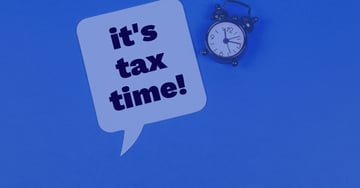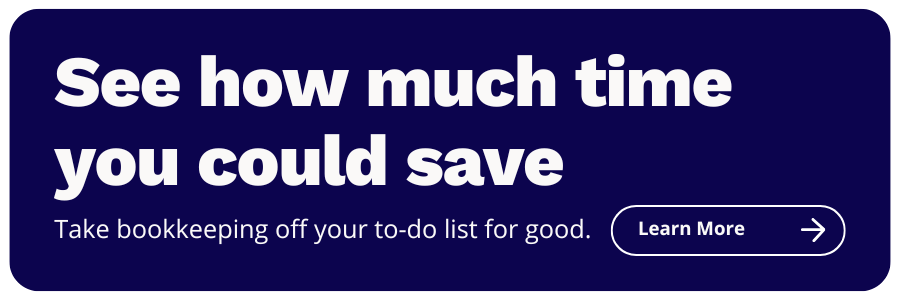The 411 on 1099s: What RIA Owners Need to Know
Share this
What is a 1099, and why is it important?
While much mystery surrounds the topic, IRS Form 1099 is simply a collection of tax forms that document various types of payments made by an individual or business to a recipient who typically doesn't employ them. There are 22 types of 1099 forms, including the 1099-MISC, the 1099-NEC, the 1099-K, and a new addition to the lineup, the 1099-DA.
Since it generates the most questions, we'll focus on File Form 1099-NEC, Nonemployee Compensation, which reports miscellaneous payments made to non-employee individuals for services provided to your business.
Note: If 1099-NEC sounds new to you, that's just the IRS keeping you on your toes. Previously, Form 1099-MISC (box 7) was used to report non-employee compensation. However, starting in the 2020 tax year, the IRS resumed using Form 1099-NEC to report non-employee compensation.
The importance of issuing 1099s lies in accurately reporting what are ultimately business expenses, leading to more favorable outcomes when it comes time to file your company's taxes.
Who receives a 1099-NEC?
In a nutshell, any non-employee who does $600 or more worth of work for your company during the tax year and is paid via debit card, bank ACH, or Zelle will need to receive a 1099. Specifically:
- Attorneys (See important exemptions to this below)
- Vendors (defined as a federal executive agency)
- Independent contractors who perform services and are not your employees (including parts and materials)
Some likely non-employees may include the temporary assistant you hired or the marketing freelancer you found to do a couple of hours of gig work for you.
In Publication 15, the IRS provides guidelines for determining whether an individual is an independent contractor or a “non-employee.” Still, it comes down to a non-employee who is generally NOT subject to the business’s instructions about when, where, and how to work.
Who receives a 1099-MISC?
Most 1099s will be filed as NEC, but a few exceptions may require you to file a 1099-MISC form instead. These are miscellaneous payments totaling over $600 per payee that could be for:
- Rent payments
- Medical and Healthcare payments
- Gross proceeds paid to an attorney (these are payments made to an attorney in the course of your trade or business in connection with legal services, but not for the attorney’s services, for example, as in a settlement agreement)
- Prizes and awards (not paid to employees)
What is a 1099-DA?
This new 1099 form was designed to address the issues that have arisen in recent years, including inconsistent reporting and a lack of information on how to report earnings from cryptocurrencies, NFTs, and other digital assets. Previously, these earnings would have been reported on a 1099-K; however, a combination of incomplete information, inconsistent reporting, and a lack of third-party verification made it difficult for the IRS to verify the reported information.
This new 1099 form will be issued by digital asset brokers and those treated as brokers for digital asset management, with the goal of providing the IRS with more complete and accurate information regarding crypto transactions, thereby improving compliance and reducing tax evasion.
Unlike the other 1099 forms, there is no threshold that constitutes the reception of a 1099-DA. Digital asset brokers will be required to issue this form for any transaction that results in a gain or loss, regardless of the asset's value.
What is "Nonemployee Compensation"?
Per the IRS, if the following four conditions are met, you must generally report a payment as non-employee compensation:
- You made the payment to someone who is not your employee
- You made the payment for services in the course of your trade or business (including government agencies and non-profit organizations)
- You made the payment to an individual, partnership, estate, or in some cases, a corporation, and
- You made payments to the payee of at least $600 during the course of the year
Do I need to issue a 1099-NEC for payments made for personal purposes?
Nope. You are only required to issue 1099-NEC forms for payments you made during your trade or business. Personal purposes don’t count.
Are there exceptions to the 1099-NEC requirement?
Of course. This is the tax law we’re talking about.
Some payments do NOT have to be reported on Form 1099-NEC, although they may be taxable to the recipient. Here are some of the more applicable nonemployee payment exemptions:
- Generally, payments to a corporation, including LLCs that operate as a C or S corp (Note: You can determine/verify the business structure from the box selected in Section 3. of their W-9)
- Wages, any bonuses, prizes, and awards paid to employees (report these on Form W-2)
- Military differential wage payments made to employees while they are on active duty in the U.S. Armed Forces or other uniformed services (report on Form W-2)
- Business travel allowances paid to employees (may be reportable on Form W-2)
But there’s an exception to this exemption. Remember those legal services mentioned above? That's right; you are required to file a 1099-NEC regardless of their entity's structure (noted above as the excepted LLC, S, or C Corps)—UNLESS you pay by credit card.
Payments made via credit card or PayPal do not necessitate filing a 1099 because the credit card processor will send a 1099-K to the individual or company at the end of the year. This means that if you paid for legal services via credit card or PayPal, you do not need to send a 1099. (Kind of a double Reverse Uno card).
If you fall under the category of receiving payments via credit cards or a third party (such as AdvicePay) and are expecting to receive a 1099K, there is an important update for 2024. For 2023 and prior years, payment apps and online marketplaces were only required to send out Forms 1099-K to taxpayers who received over $20,000 and had over 200 transactions. For the 2024 tax year, the IRS plans to make that threshold $5,000 to phase in new reporting requirements.
How can I make the 1099 process easier at year-end?
There are a few things you can do to make your life easier:
- Collect W-9s upfront from any vendor you expect to pay more than $600. How can you encourage vendors to provide their W-9s on time? Tell them you’ll pay them once it’s received. Vendors are also subject to a penalty of $50.00 for failure to provide a W-9 when it is requested and is subject to an additional $50 penalty per each failed request
- But what if the vendor still does not provide a W9 form after multiple attempts?
-
- If a contractor, vendor, or other payee refuses/fails to provide their taxpayer identification number, you should still fill out and timely file your 1099 returns with a notation that the payee failed or refused to provide a W9 with their TIN. Failure to file Form 1099 based on a person’s refusal or failure to provide that information does not excuse the business from filing all required returns
- When doing monthly bookkeeping, record the vendor name in the payee line
- Pay for things on a credit card
- If you are using Quickbooks Online, we encourage you to review your vendors, hit edit on the ones that should receive 1099’s, and check the “Track for 1099s” box. This will allow you to easily pull the “1099 Transaction Detail Report” in QBO. You may need to adjust some settings in that report so all vendors can appear
- While we do not currently offer 1099 preparations, engaging XYPN Books to perform your bookkeeping throughout the year will remove the headache when sending them to your vendors. There are few things worse than trying to do a year's worth of bookkeeping within a short timeframe to ensure you are reporting the correct numbers
When are the deadlines?
The Federal filing date for Form 1099-NEC is January 31st. You also need to furnish a statement to the recipient by January 31st. Check with your state to see if you have to file copies of the 1099s with them.
It is important to note that starting tax year 2023, if you have 10 or more returns, you must file them electronically. If not, you could be subject to penalties if paper forms are filed unless a waiver is requested. To file 1099 Forms electronically, filers must request a new IR-TCC code from the IRS, which can take up to 45 days to obtain.
Important Note for 2026:
As we head into 2026, it is never too early to begin preparing for the following tax year! We will keep you updated as these requirements are constantly changing, but one thing we do know so far is that for all 1099-NEC/MISC recipients in 2026, the threshold will no longer be $600 for a 1099. The minimum amount is being increased to $2,000.00. Therefore, if you pay someone less than $2,000.00 in 2026, they will not need a 1099.
Additional Resources
If you’re searching for more information or in need of additional guidance, review these helpful resources:
- 1099online.com – XYPN Books has used this application to prepare 1099s. While a bit archaic, it gets the job done.
- QuickBooks 1099 E-file – Although we haven’t used this application, there will likely be efficiencies from using the same system for accounting and 1099 preparation.
- How to Determine Who Receives a 1099
Didn't find your answer?
If you have any 1099 questions that we didn’t cover here or would like to know more about how XYPN Books can help you bring balance to your books and business so you can spend more time serving your clients, get in touch!
Resources consulted:
Wolny, Nick. “All 22 Types of 1099 Tax Forms, Explained.” CNET, 8 February 2023, https://www.cnet.com/personal-finance/taxes/1099-tax-forms-explained/. Accessed 4 January 2024.

Jocelyn Rucker
Meet Jocelyn Rucker, the self proclaimed Zena the warrior princess of bookkeeping and taxes. I believe in “rendering to God what is God’s and to Ceasar’s what is Ceasar’s,” nothing more, nothing less. I love sticking up for the small business owner, of which I have several in my family, helping them navigate the “clear as mud” tax code, legally. After all it’s not just what you earn, but what you keep & what you do with what you keep. Interested in all things finance, together with my fellow XY Bookies, we collaborate to help you do more of what you love.

Danielle Simard
From Portsmouth, New Hampshire, Dani started her bookkeeping career with XYPN books in 2021 and has grown to be the Accounting Manager. She loves to go fly fishing during the summer and when it starts to snow, she hits the ski slopes. Her favorite food is buffalo chicken pizza and her favorite book is The Alchemist, by Paul Coelho.
Samantha Rivera-Bagley
Samantha Rivera-Bagley is an experienced bookkeeper with a strong background in the building materials industry. As a certified XYPN (XY Planning Network) bookkeeper, she focuses on helping financial advisors and their clients reach their goals. Samantha's dedication to accurate and timely financial insights ensures her clients' success. Always eager to learn and grow, Samantha shares her knowledge to help others improve their financial skills. Through her writing and client interactions, she aims to make a positive difference in the world of finance.
Share this
- Advisor Blog (721)
- Financial Advisors (244)
- Growing an RIA (128)
- Business Development (95)
- Digital Marketing (95)
- Marketing (92)
- Community (82)
- Start an RIA (76)
- Coaching (74)
- Running an RIA (72)
- Compliance (70)
- Client Acquisition (68)
- Technology (67)
- Entrepreneurship (64)
- XYPN LIVE (64)
- Fee-only advisor (49)
- Sales (49)
- Bookkeeping (46)
- Client Engagement (45)
- Practice Management (44)
- XYPN Books (43)
- Scaling an RIA (42)
- Investment Management (41)
- Client Services (31)
- Employee Engagement (31)
- Financial Education & Resources (31)
- Lifestyle, Family, & Personal Finance (31)
- Market Trends (26)
- Journey Makers (24)
- Process (18)
- Niche (13)
- SEO (9)
- Career Change (8)
- Partnership (8)
- Transitioning Your Business (7)
- Sapphire (6)
- Persona (4)
- Transitioning To Fee-Only (4)
- Emerald (3)
- Social Media (3)
- Transitioning Clients (3)
- RIA (2)
- Onboarding (1)
Subscribe by email
You May Also Like
These Related Stories

Your 2022 Tax Year In Review From Your Team At XY Tax Solutions
Jan 6, 2023
5 min read
.png?width=360&height=188&name=BLOG%20IMAGES%20TEMPLATE%20(25).png)
XYPN Roundup: Our Top 10 Tax Blogs of 2021
Jan 20, 2022
6 min read




.png?width=600&height=400&name=PW%20%20Insider%20Insights%20YT%20Thumbnail%20Image%201920%20%C3%97%201080%20px%20(1).png)

